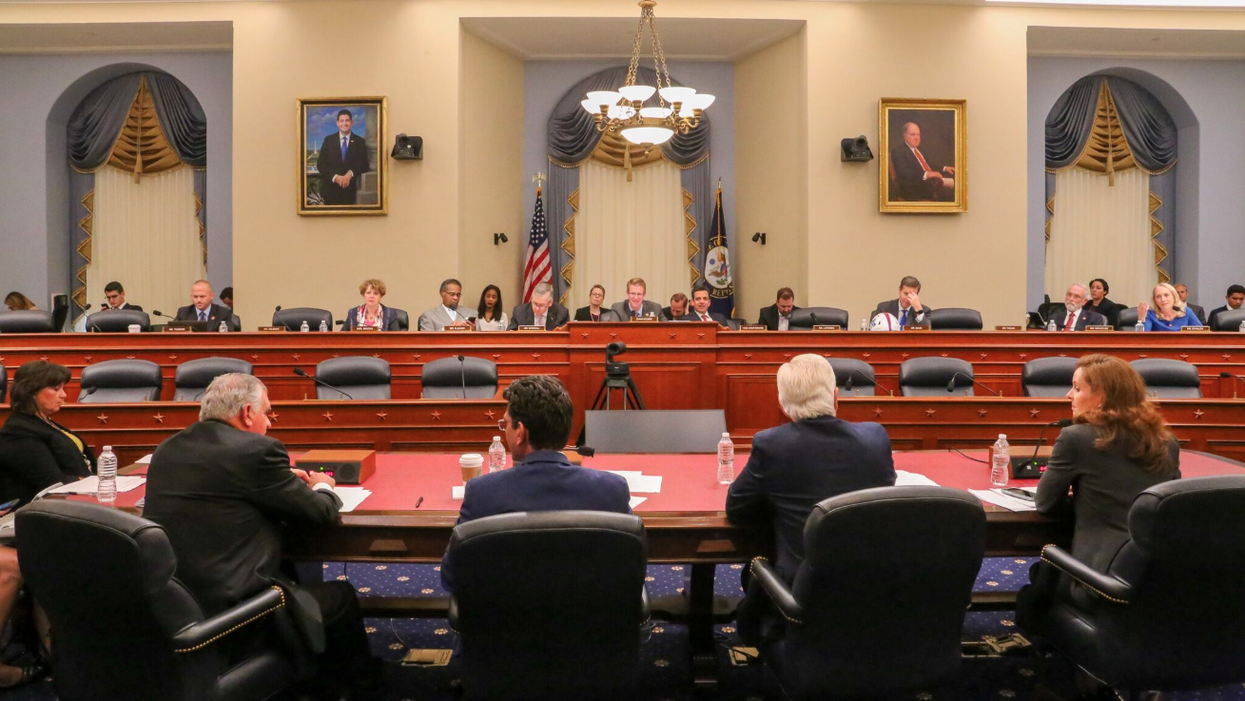While many members of Congress spent Thursday talking about impeachment, one House committee held a hearing on promoting congressional civility. Those two ideas may not seem likely to co-exist, but those who testified hold out hope that Congress can come out of the coming drama in better shape.
"There is an overarching question we have to engage," Jason Grumet, president of the Bipartisan Policy Center, told the House Committee on the Modernization of Congress. "Are we facing a crisis in a democracy that is durable and capable and up to the task? Or are we actually facing a crisis of democracy in an institution that's strained and brittle and at real risk?"
It remains to be seen what, if anything, a divided Congress can accomplish in the midst of an impeachment inquiry. But, he noted, it somehow functioned under similar situations in the past.
He pointed to the 649 bills that President Richard Nixon signed with articles of impeachment filed against him and the 148 bills Congress passed during 10 weeks of House impeachment hearings against President Bill Clinton.
But while polarization in Congress existed during the 1970s and 1990s, the level of party polarization today is at historic heights, said Jennifer Nicoll Victor, a George Mason University professor, citing roll call statistics dating back to the 1870s.
Economic inequality, party alignment over issues of race and reliance on fundraising dollars from ideological donors have contributed significantly to today's polarized environment and the souring of congressional civility, Victor said.
"Congress is a victim of a cancerous phenomenon much more than it is a willful participant in discord," she said.
Solutions on how to fix the civility crisis often returned to a central theme: helping members get to know each other.
"We engage others with greater civility and respect if we recognize in them what we all share as human beings and Americans," Keith Allred, executive director of the National Institute for Civil Discourse, said.
Recommendations included requiring bipartisan orientation for new members, hosting weekly bipartisan dinners and creating block scheduling to carve out time for lawmakers to interact.
Former Rep. Ray LaHood, a Republican, told the committee the House should reintroduce biennial retreats for members and their families as a way to build relationships, an idea supported by others on the panel.
LaHood credited the retreats he helped organize from 1997 to 2003 for helping foster friendships that resulted in the passage of signature bipartisan legislation.
"It's pretty hard to trash somebody on the other side when you know their spouse or you know their kids," he said.
Both Victor and Grumet recommended reauthorizing earmarks, which were banned by Congress in 2011 as a good-government reform idea but had the unintended consequence of distancing members, Victor said.
"By eliminating earmarks, now essentially what we've done is we've eliminated one of the key things that members of Congress can bargain over," she said. "If you don't have those objects over which you can negotiate, then it's really hard to engage in building a bipartisan coalition."




















Trump & Hegseth gave Mark Kelly a huge 2028 gift